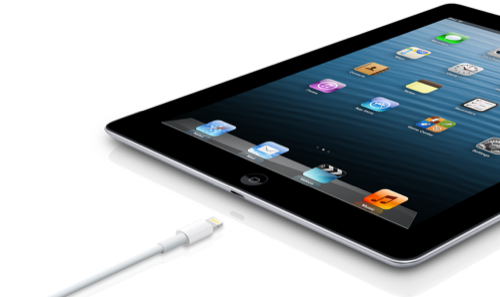
PC shipments dropped 6.4% in the fourth quarter of 2012, while tablet sales rose 75.3% in those three months. The two latest numbers from research firm IDC, taken together, confirm what now seems to be an inevitable trend in personal computing: Tablets are now driving the computer market, while PCs have to be content to follow. If these trends continue, in fact, it won’t be that long before tablets outsell PCs overall – just over a year or so, in fact.
IDC reported Thursday that the tablet market shot up at an almost unbelievable rate during the fourth quarter, as iPads and other tablets apparently became the gift to give and receive this holiday season.
Sun Setting On the PC?
Tablet sales not only spiked more than 75% from a year ago, to 52.5 million units, they grew 74.3% from the third quarter of 2012 – implying that some catalyst drove fourth-quarter sales in particular. IDC concluded that that spark was the Apple iPad mini, whose sales of 22.9 million units caused Apple tablet shipments to spike by 48.1%. However, the rising tide of Android tablets rose slightly higher over Apple’s head, as Cupertino’s market share dropped from 46.4% in the third quarter to 43.6%.
In a report released this month, IDC concluded that the “advancement of computing no longer starts and ends with the personal computer,” an acknowledgement of the now-accepted belief that the PC is has lost its primacy: that the personal computer is following the smartphone and tablet, rather than driving it.
One question is how much of Microsoft’s legacy in the PC is affecting sales of its Surface tablets. IDC reported that Microsoft sold fewer than 900,000 Surface RTs, the cheaper, ARM-based tablet that was released before the Surface Pro hits stores next month.
Microsoft Surface “Failed To Gain Much Ground”
“There is no question that Microsoft is in this tablet race to compete for the long haul,” Ryan Reith, program manager for the Mobile Device Tracker program at IDC, said in a statement Thursday. “However, devices based upon its new Windows 8 and Windows RT operating systems failed to gain much ground during their launch quarter, and reaction to the company’s Surface with Windows RT tablet was muted at best. We believe that Microsoft and its partners need to quickly adjust to the market realities of smaller screens and lower prices. In the long run, consumers may grow to believe that high-end computing tablets with desktop operating systems are worth a higher premium than other tablets, but until then [prices] on Windows 8 and Windows RT devices need to come down to drive higher volumes.”
For comparison, 900,000 tablets sold doesn’t even match the Barnes & Noble Nook, which finished fifth with 1 million tablets sold. IDC estimated that the Nook sold 1.9% of all tablets sold, leaving Microsoft with about 1.7% of the total market. That’s bad news for Barnes & Noble, whose sales dipped from 1.4 million units a year ago, and an indication that Amazon is clearly winning the war between the two online book giants.
Still, it’s all small potatoes compared to the leaders: Apple (22.9 million units, 43.6% market share), Samsung (7.9 million units, 15.1% market share), Amazon (6.0 million units, 11.5%) and Asus (1.0 million units, 1.9%). You can see how each vendor has fared in IDC’s interactive historical chart, below.
The massive growth in tablets overshadowed some of the individual success stories. Although Apple’s iPad mini delivered a supremely successful launch, Samsung’s growth more than doubled (263%) from a year ago. And even that paled in comparison to Asus, whose popular Google-branded Nexus 7 tablet helped drive 402.3% growth, from 2% market share to 5.8%.
For now, PC sales still retain their handy lead over tablets: 89.8 million units versus 52.5 million units sold during the fourth quarter.
That probably won’t change right away, as the first and second quarters of the year are traditionally the industry’s slowest, so both PC and tablet sales numbers should return to earth. But over time, if the numbers hold, the number of tablets sold could pass the number of PCs sold as early as sometime in 2014. That’s because total tablet sales from 2011 to 2012 nearly doubled, from 68.7 million units to about 127.2 million units. PC sales should continue to drop, as they did from 363.9 million units in 2011 to 351.4 million units last year.
Winners And Losers?
Microsoft recently reported a record quarter, while Intel, the other engine of the PC market, reported a tidy $11 billion profit on $53 billion in revenues. But Intel’s outlook is fueled by a healthy server market, virtually the entire desktop and notebook space, as well as new entries in smartphones and tablets. In many ways, Intel and Microsoft are on parallel paths, trying to expand their traditional oligarchy: the PC. Intel is clearly succeeding: Microsoft’s path is less certain.
“As Windows 8 matures, and other corresponding variables such as ultrabook pricing continue to drop, hopefully the PC market can see a reset in both messaging and demand in 2013,” Jay Chou, an IDC analyst wrote earlier this month. It may be too late.

















